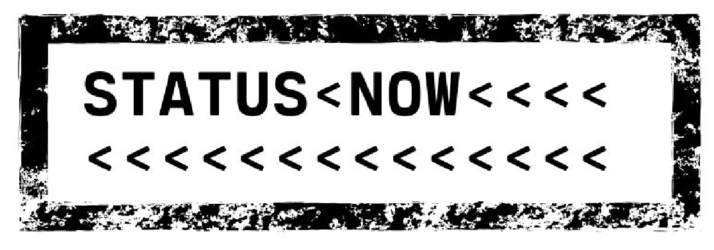26 February 2021: Movement of Asylum Seekers in Ireland (MASI) : Statement on White Paper to end Direct Provision

The Movement of Asylum Seekers in Ireland (MASI) notes the publication of the White Paper on ending the abhorrent system of Direct Provision. MASI intends to discuss the White Paper at its weekly Tuesday meeting. At glance, there are some positives in the White Paper in relation to provision of income supports that are equal to the supports provided for Irish nationals. And the ending of shared intimate living spaces for families is to be welcomed. The White Paper is ambitious in some areas and lacks imagination in others.
MASI is appalled by the decision not to provide supports for asylum seekers to live independently in the community if they do not avail of 4 months of Direct Provision (whatever name the government calls it) after lodging their asylum claim. This effectively maintains the current policy of not providing any support for an asylum seeker who is not in Direct Provision. Such a provision would allow some asylum seekers who are currently in Direct Provision to exit the system earlier than the disappointing December 2024 date set for ending Direct Provision.
It is also disappointing that none of these changes will be implemented through legislation. The Direct Provision system has existed for a long time without being on a statutory footing. The 4 months stay in a reception centre will not be a limit imposed through law for instance. This is problematic as people might end up in the system longer with no way of holding the State to account if it happens, as it has been the case with Direct Provision. The government has taken longer to address things that they are legally required to do like vulnerability assessments and bank accounts. It is difficult to trust that the State will strictly adhere to this 4 months maximum stay in a reception centre without it being a legal requirement. Surely the legislature must determine how asylum seekers will be treated in future through legal protections to avoid the shambolic situation we have experienced over the past two decades in Direct Provision.
There needs to be more details on how the government intends to accommodate single people as the White Paper still maintains some element of congregated setting by having a group of asylum seekers (up to 10) share living spaces like kitchen, lounge and so on. Even if they have own bedroom, the shared living space with 9 other strangers may well necessitate house rules and some sort of management which maintains institutional setting. The assumption that the 10 strangers sharing intimate living spaces will get on ignores the reality of congregated settings. We have had conflicts with 2 to 3 strangers sharing intimate living spaces where management and/or the police have had to
be called to address conflicts in Direct Provision. Ending institutionalisation, congregated and segregated living must mean asylum seekers have a home; even if the asylum seeker status is temporary. And it cannot be a home with imposed household rules as we have had in Direct Provision. Thus more detail is required in how single asylum seekers will be accommodated after the initial reception period.
The ‘integration from day one’ phrase we have heard from government is illusory if the State maintains restrictions on the right to work. The Catherine Day group recommended that all asylum seekers who have not had a final decision on their asylum claim after 3 months should be granted the right to work. There is no reason why Ireland shouldn’t exempt asylum seekers from requiring a work permit or labour market access permit immediately on claiming asylum (Sweden already does it). The Catherine Day report also recommended that asylum seekers be given the right to work in the form of an Irish Residency Permit card. The recent changes announced by Minister for Justice do not address this and yet the government committed to implementing the Catherine Day recommendations in the Programme for Government.
While the White Paper has some positive changes including the end of shared living spaces for families and supports for children, it does have problematic areas that make it difficult to hold the State accountable without putting the provision of accommodation and other supports for asylum seekers on a statutory footing. Other people in Ireland have their rights codified in law in relation to accommodation and welfare payments, and this will not be the case for asylum seekers. MASI calls on the Houses of the Oireachtas to insist on legislating for these changes in how asylum seekers are to be treated in the State. Further, the International Protection Act must be amended to include a statutory limit on how long an asylum seeker is to await a decision on their asylum claim. Otherwise we’ll still be talking about backlogs and limbo in the asylum system in a few years time. And the Minister for Justice must implement the recommendation to grant permission to remain to people who have been in the system for 2 years at the end of December 2020 as recommended by the Catherine Day Advisory group.
Importantly, the Irish Refugee Council and other groups called on the government to increase the weekly allowance paid to asylum seekers during the pandemic. The government rejected these calls and asylum seekers have had to rely on donations. MASI has provided 140 new laptops to students in Direct Provision who were left with no support from the government when Covid-19 restrictions were imposed. Other groups such as Every Child Is Your Child are still collecting tablets for students to facilitate studying in difficult conditions in Direct Provision. The White Paper remains mute on asylum seekers experiencing poverty in Direct Provision today as not all asylum seekers are allowed to work.
ENDS
About MASI – the Movement of Asylum Seekers in Ireland is a grassroots organisation based in Ireland. We are people who are or have been in the asylum and direct provision system in Ireland, working and advocating together for justice, freedom and dignity for refugees, asylum seekers and migrants. Our focus is on the Right to Education and the Right to Work for all people seeking asylum, on the complete abolition of direct provision and an end to deportations.
Media Enquiries: Bulelani Mfaco – +353 89 474 2911
www.masi.ie Email: bulelani@masi.ie Twitter: @MASI_ASYLUM
MASI is a signatory organisation to the StatusNow4All campaign
RTE: Govt to replace Direct Provision with international protection system
The Government is to replace the Direct Provision system with an international protection system over the next four years.
A new two-phased approach will be set out in a White Paper to be published this morning.
Under the plans, it is anticipated that all existing Direct Provision centres will close by the end of 2024.
The Direct Provision system was established to house asylum seekers entering the Irish State in search of international protection.
But what began as an interim measure, over 20 years ago, still exists. It has been criticised by human rights organisations, NGOs, and those in the system.
Today, the Government’s White Paper will propose a new two-phase approach.
Read more: https://www.rte.ie/news/ireland/2021/0226/1199464-direct-provision/
Irish Times: Lack of detail on how to clear asylum backlog tempers welcome to plan
Concerns voiced about segregation and lack of provision for independent living
The Government’s commitment to ending direct provision has been welcomed by residents who have been stuck in the troubled accommodation system for years.
However, a lack of clarity as to how the Government plans to clear the backlog of asylum applications is “a huge problem”, one such resident said following the publication of a long-awaited White Paper on the matter.
Read the White Paper here: https://www.gov.ie/pdf/?file=https://assets.gov.ie/124757/ef0c3059-b117-4bfa-a2df-8213bb6a63db.pdf#page=0
